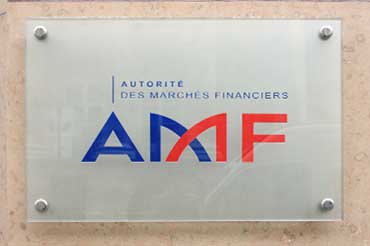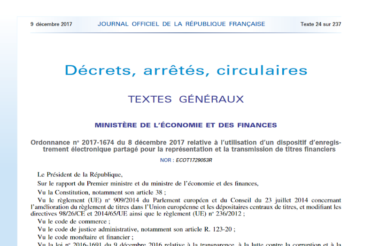Less than a year ago, most banks had lost interest in bitcoin and its technology, the blockchain. Today, they are suddenly confronted with a new reality: blockchain is becoming the future of the financial sector.
Not everyone is unanimous on this point, however. At the beginning of November 2015, the CEO of JP Morgan basically said that bitcoin was a waste of time. At the same time, the Managing Director of the International Monetary Fund, Christine Lagarde, tried to reassure banks that as long as these new technologies use and abuse the benefits of anonymity, the banking industry has a bright future ahead of it.
But the facts are quite different.
In order not to be left by the wayside in the global race that has just begun, financial institutions are making increasing attempts to band together to master this new technology and integrate it into their economic system.
In recent weeks, the race to blockchain has accelerated:
On 29 October 2015, bitcoin.fr relayed an announcement from Reuters that the startup R3 CEV, whose ambition is to set up the foundations and standards of a shared blockchain between banking institutions, now had 25 financial institutions spread around the world: Bank of America, Bank of New York Mellon, Mitsubishi UFJ Financial Group, Citi, Commerzbank, Deutsche Bank, HSBC, Morgan Stanley, National Australia Bank, Royal Bank of Canada, SEB, Societe Generale, Toronto-Dominion Bank, Goldman Sachs, Barclays, BBVA, Commonwealth Bank of Australia, Credit Suisse, JPMorgan, State Street, Royal Bank of Scotland, UBS, Mizuho Bank, Nordea and UniCredit.
On 11 November 2015, the German Banking Association stated in a report that blockchain technology has the potential to revolutionise the current settlement system in the securities industry.
On 13 November, a representative of the Bank of Canada noted that bitcoin is among the alternative financial technologies that will increasingly push financial activity outside the traditional sector.
On the same date, a Capgemini report told financial firms that they could no longer ignore blockchain technology.
On the same day, at the 80th anniversary celebration of the United Overseas Bank Limited (UOB), the first banking institution in Asia Pacific, Singapore's Prime Minister Lee Hsien Loong urged domestic banks to use blockchain technology.
He called on the country's banks and the Monetary Authority of Singapore (MAS) to get involved and monitor these developments.
The Prime Minister stressed that payment methods are changing with the use of smartphones. He cited the Chinese e-commerce giant Alibaba, which recorded more than $14 billion in sales in a single holiday, 70% of which were made via a mobile phone or tablet.
He said that blockchain can also be used for many other applications such as real-time automatic payment systems or verification of financial transactions.
This speech is of particular importance, bearing in mind that Mr Lee Hsien Loong :
- is addressing UOB, which is ranked by Bloomberg as one of the 10 strongest banks in the world, holding over S$300 billion in assets,
- is the Prime Minister of a leading banking country in Asia Pacific, which claims to be the new Silicon Valley.
This statement is indicative of the highly strategic and competitive interest that blockchain may represent for the financial sector in the future.
This need to open up to blockchain in order to be competitive has not escaped the attention of the international financial industry. On 18 November last year, major players in the financial sector including the London Stock Exchange, UBS, the CME Group, Société Générale, LCH.Clearnet and Euroclear came together to explore the possibilities of applying blockchain technology to the securities market.
In response, on 19 November 2015, five new banks (BNP Paribas, Canadian Imperial Bank of Commerce, ING, MacQuarie and Wells Fargo) joined R3 CEV.
It is interesting to note that banks are interested in blockchain technology in order to massively reduce their costs and speed up transaction processing times, despite the fact that this technology was born out of a currency whose very purpose was to cut out third-party intermediaries.
At present, banks are studying this technology, but it seems that none of them have yet integrated it. There are still many questions. Will banks be able to adapt in time? Can they really use blockchain while ignoring bitcoin? What will these new financial services look like? Will the legislator facilitate this development or will it block this new technology? Will banks and bitcoins be able to coexist?
Cet article a d'abord été publié dans le site www.bitcoin.fr
L'image, "Singapore Skyline at Night with Black Sky" by Merlion444 is licensed under CC0 1.0






